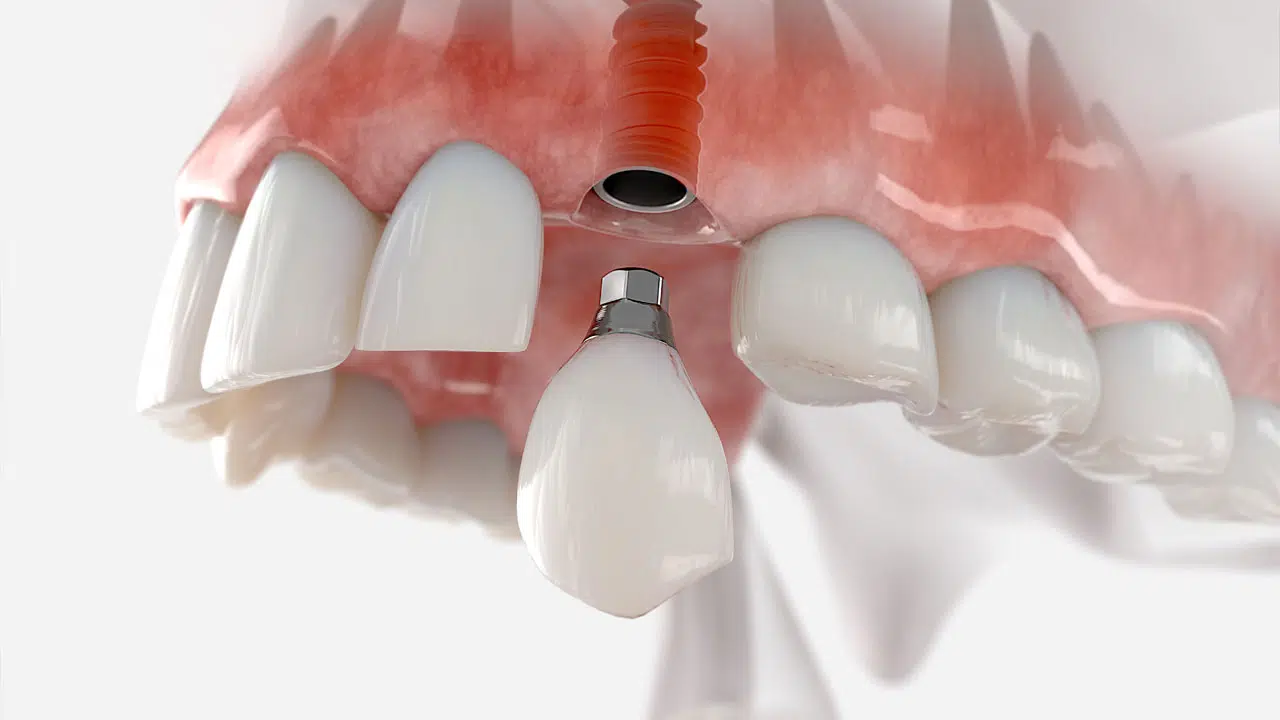
Dental implants are a permanent way to restore your smile if you have missing teeth. The implant post acts as a tooth root, providing you with the same appearance and functionality as your natural teeth.
If you have lost your teeth due to illness, trauma, or an oral health condition, you may be considering dental implants to regain your smile. Discover what to expect before, during, and after the procedure to determine if dental implants are a good option for restoring your smile.
What to Expect During the Dental Implant Procedure
Dental implants are a multi-stage treatment that occurs over several months. If you choose dental implants, here is what you can expect from the procedure.
Initial Consultation
Before the surgery, your dentist will assess your oral health and jawbone using X-rays and digital imaging to determine whether you are a candidate for dental implants.
If your dentist determines you have insufficient jawbone density, you may need a bone graft or sinus lift.
For patients with advanced gum disease, the condition needs to be treated before implant surgery to increase the chances of a successful implant.
Anesthesia options
Before the surgery, the surgical site is locally anesthetized with an injection. In some cases, your dentist may recommend general anesthesia if your mouth requires multiple extractions and implant sites. Dr. Aparna Gottumukkula will discuss the type of anesthesia with you before the surgery.
The surgery
The dental implant procedure occurs over several phases. Before the procedure, you may need to have severely decayed or broken teeth extracted.
- Phase 1. As soon as the anesthetic takes effect, your dentist makes a small incision in the oral mucosa to expose the jawbone. The dentist then drills a small hole in the jawbone and places the implant. The titanium implant features screw-like threads along the post allowing for the jawbone to fuse with the implant. The dentist then closes the incision with dissolvable sutures. After the procedure, the implant must heal for up to three months to allow the bone to fuse with the implant post via osseointegration. Once the site has healed, you will return to have the abutment fitted.
- Phase 2. During the abutment fitting, the gum tissue is reopened to expose the implant, and the abutment is placed on top of the post. The gum tissue is closed around, but not over the top of, the abutment. Following the abutment placement, you need an additional two to four weeks of healing time before attaching the restoration.
- Phase 3. When the gums have healed, your dentist takes impressions of the site and sends the mold to an off-site lab to create a custom dental prosthesis. Once the prosthesis is ready, it is fitted to the abutment.
What to Expect After Each Phase of the Surgery
There is a recovery period after each phase of the dental implant surgery. After the local anesthetic wears off, you may feel slight discomfort due to postoperative swelling and inflammation.
During the healing period, rest with your head elevated, eat a soft food diet, take over-the-counter medication, and use cold therapy on the affected side of your face.
For the first week after the procedure, avoid brushing over the implant site. To prevent food particles from collecting in the socket, you can rinse with a salt water solution morning, evening, and after eating. The dentist may prescribe an antibacterial mouth rinse as an alternative. All other teeth can be brushed as usual.
Contact your dentist immediately if you experience persistent pain, swelling, bleeding, or numbness after implant placement.
Potential Complications
Dental implants have a high success rate — up to 95% over ten years — but the body can reject the implant in some cases. Unexpected stress (grinding, pressing), illness, poor oral hygiene, or smoking can all inhibit healing and increase the rate of failure.
Infections such as peri-implantitis can affect the tissue surrounding the implant and cause jawbone loss, leading to implant rejection.
Visit Valley Dental Care of Plainfield to Restore Your Smile
If you have missing or severely damaged teeth that cannot be saved, call Valley Dental Care of Plainfield to schedule an appointment to find out if dental implants are the right option to restore your smile.